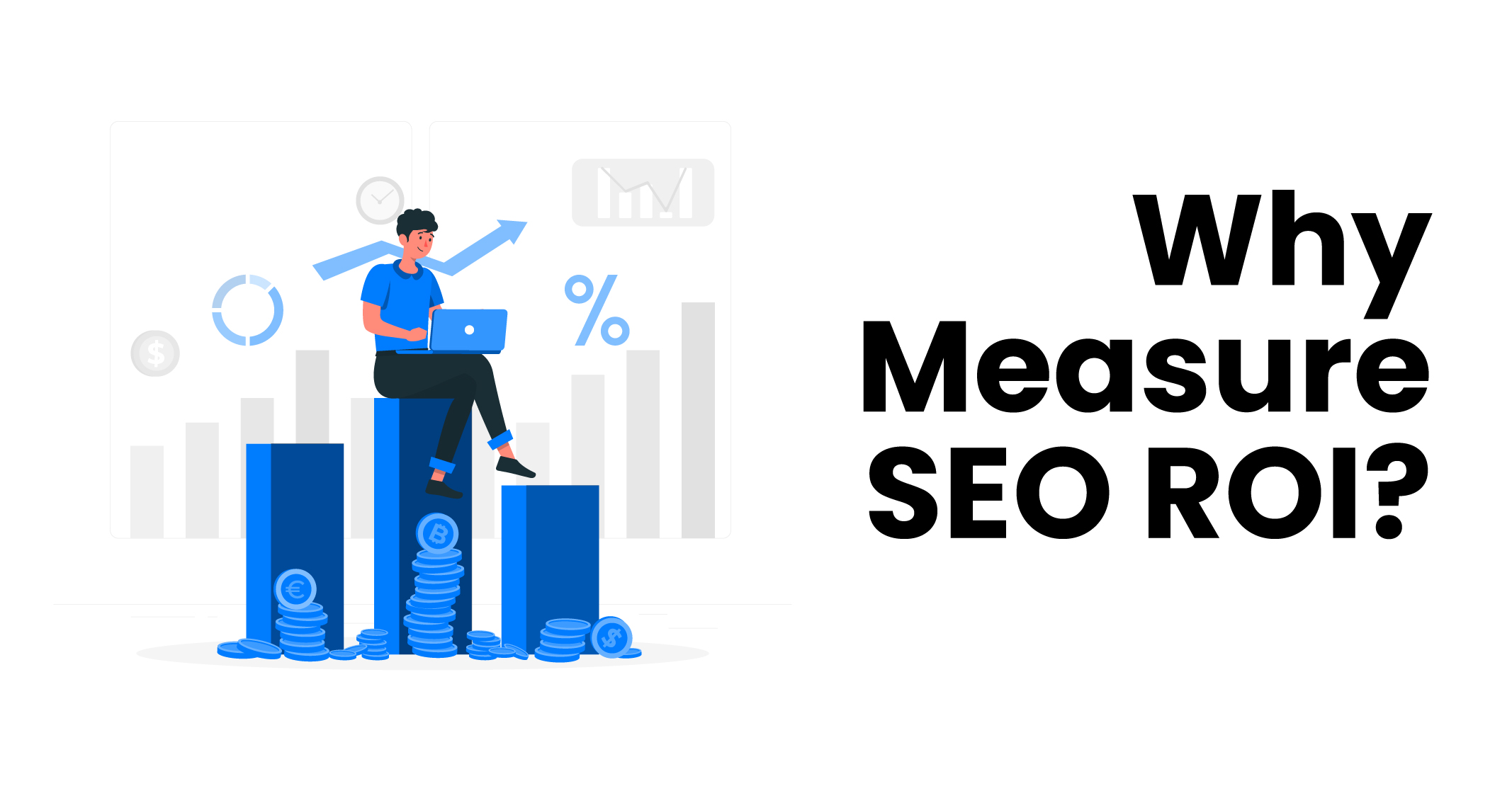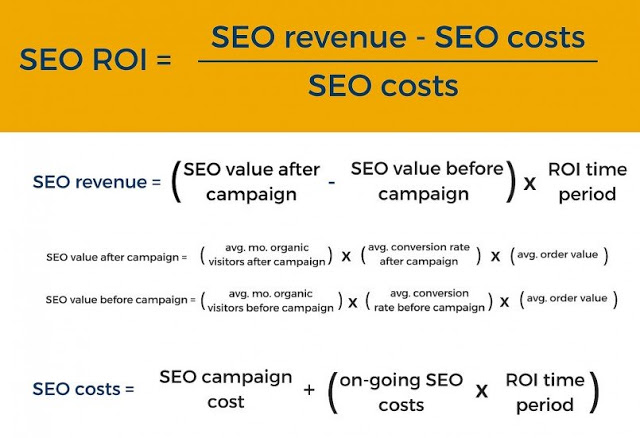I hope you enjoy reading this blog post.
If you want to get more traffic, Contact Us

Click Here - Free 30-Minute Strategy Session
Be quick! FREE spots are almost gone for this Month. Free Quote

As a business owner, understanding the ROI (return on investment) of your SEO efforts is crucial. This is especially true for in-house and agency marketers who need to demonstrate the value of their work to stakeholders. Without being able to prove the worth of your SEO investments, it can be difficult to justify their continuation.
In this blog post, we’ll guide you through the process of measuring the ROI of your SEO efforts, step by step. Whether you’re just starting with SEO or looking to refine your existing strategy, this guide will provide you with the tools and knowledge you need to evaluate the success of your SEO campaigns. So, let’s dive in and explore the importance of measuring your SEO ROI.

Click Here – Free 30-Minute Strategy Session
Be quick! FREE spots are almost gone for this Month
The ROI (return on investment) of SEO is a crucial metric that measures the effectiveness of all SEO activities. In essence, it is the correlation between the cost of your SEO efforts and the results they generate. Whether you’re an SEO consultant, manager, or anyone involved in SEO, measuring the ROI is essential in evaluating the success of your SEO campaigns.
One of the key benefits of measuring your SEO ROI is that it allows you to align your SEO efforts with your business goals. If the revenue generated by your SEO strategy exceeds its cost, then you have a positive ROI.
However, it’s important to keep in mind that SEO is not a quick fix, and significant results may take time to materialize. Measuring your SEO ROI can also be a complex process that requires careful consideration of various factors.
Nevertheless, it remains an important KPI (key performance indicator) for any business. By tracking your SEO ROI, you can determine the effectiveness of your SEO campaigns and make informed decisions about how to optimize your efforts for even greater success.
Learn More: 7 Reasons Why Investing in SEO in 2023

Organic search accounts for a significant portion of website traffic, with an average of 53% of traffic coming from organic search for most businesses. Given that nearly all purchases today involve some form of organic search, understanding the financial value of SEO is crucial for any business.
Tracking your ROI (return on investment) in SEO is essential to determine the financial value that your SEO strategy is driving. Without knowing how much revenue your SEO efforts are generating for every dollar invested, it can be challenging to identify which strategies are working and which ones are not.
While other SEO KPIs are also important to track, a positive ROI is the ultimate measure of profitability. Demonstrating a positive ROI can help you gain stakeholder buy-in and provide evidence of the success of your SEO strategy.
The formula to calculate SEO ROI is straightforward and similar to calculating ROI for other types of investments. It involves dividing SEO profit by SEO costs.
To calculate SEO ROI, use the following formula:
SEO ROI = (value of conversions – the cost of investment) / cost of investment

Breaking down the formula, you subtract the cost of investment from the value of conversions and then divide the result by the cost of investment.
To measure the ROI of SEO or to understand the SEO ROI calculator, you first need to calculate the total cost of your SEO investment. This includes all costs associated with the channel.
For in-house SEO resources, track the time spent on SEO tasks and add it to your calculation. If employees work on SEO tasks only part of the time, break down their cost to an hourly or daily rate.
For freelancers and agencies, add the monthly fee directly to your investment calculation.
If your team uses any SEO tools then add the monthly cost to your calculation. If there are tools that other departments share, partially include the cost.
Add up these costs to get the total cost of SEO investment. Remember, these costs may change every month, so account for any changes when measuring your SEO ROI.
The next step in measuring the ROI of SEO is tracking and measuring the value of each conversion. To do this, you will need to use tools like Google Analytics to measure your business’s revenue generated from organic searches.
The value of conversions you track and the way you assign them will vary depending on your business type. E-commerce stores can use tracking to gather sales data from their online transactions and accurately measure their revenue. However, lead-generation businesses have to set up goals, such as form submissions and assign them a dollar value.
To set up conversion tracking for e-commerce and lead-gen businesses, follow the specific instructions for each type of business. By tracking and measuring conversions, you can get a more accurate picture of your SEO ROI.
Learn More: The Complete Beginner’s Guide to Google Analytics

To track e-commerce conversions, use Google Tag Manager to add e-commerce events to your website. You can find instructions on how to set it up on Google’s website. Once you begin tracking, you’ll be able to see a detailed e-commerce report in Google Analytics. Simply go to “Reports”, then “Monetization”, and finally “E-commerce purchases” to access the report.
When it comes to lead generation businesses, assigning a dollar value to conversions can be a bit tricky. Unlike e-commerce sites, leads don’t have a specific associated value. But that doesn’t mean you can’t assign one.
One way to do this is to create a conversion goal in Google Analytics. This could be something like a form submission, email sign-up, or phone call.
Once you have set up your conversion goal, you can assign a specific dollar value to it. For example, if you know that 10% of leads that submit a form end up becoming paying customers, you can assign a dollar value to that 10%.
To do this, go to the “Goals” section in Google Analytics, select your conversion goal and assign a value to it.
Now, you can track the number of conversions and the associated dollar value in your reports. This will give you a better understanding of the revenue generated from organic search traffic.
To calculate the ROI of your SEO campaign, you need to understand two metrics: customer LTV and lead conversion rate.
Customer LTV is the total amount you can expect a customer to spend with your business over the course of your relationship. Lead conversion rate is the percentage of leads that turn into sales.
Assuming an average customer LTV of $20,000 and a close rate of 15%, your goal value would be $3,000. Keep in mind that this calculation makes certain assumptions and is mainly applicable to businesses that rely on leads for conversions.
With the cost of investment in SEO and the value of your conversions determined, you can now calculate your SEO campaign’s ROI.
Learn More: 8 Simple Steps to Kickstart Your SEO Campaign
Calculating the ROI of your SEO campaign is straightforward once you have the necessary numbers. You can use the same formula as before:
SEO ROI = (value of conversions – the cost of investment) / cost of investment
Let’s assume your SEO campaign generated $200,000 in one month, with an investment cost of $40,000. By plugging these numbers into the formula, you get an ROI of 400% (or $4 return for every $1 spent).
You can use this formula to measure the ROI of your SEO campaign across any period if you have the cost and return data.
Forecasting SEO ROI
Effective SEO forecasting is crucial for businesses to understand and allocate the necessary resources for their SEO campaigns. By forecasting SEO traffic and ROI, businesses can make informed decisions, prioritize SEO efforts, and adjust their strategies to achieve their goals.
When forecasting SEO ROI, you need to consider several factors, such as your website’s past SEO performance, potential traffic, and average conversion rate. These insights will help you predict the expected growth and revenue you can generate from your SEO campaign.
By leveraging this information, you can create realistic and achievable SEO goals and track your progress over time. This will help you stay on track, adjust your strategies when necessary and maximise your SEO ROI.
Learn More: Top 10 SEO Strategies in 2023
Understanding the ROI of your SEO efforts is a powerful tool to showcase the value of your work. It can also help to secure further investments for your SEO strategy, such as talent, tools and more.
If your current SEO ROI is not meeting your expectations, Traffic Radius can help. We can measure your current SEO performance, research your competitors, and find optimization ideas, all in one place. Our team of experts can help you improve your SEO ROI and achieve your business goals.

LEAVE A REPLY